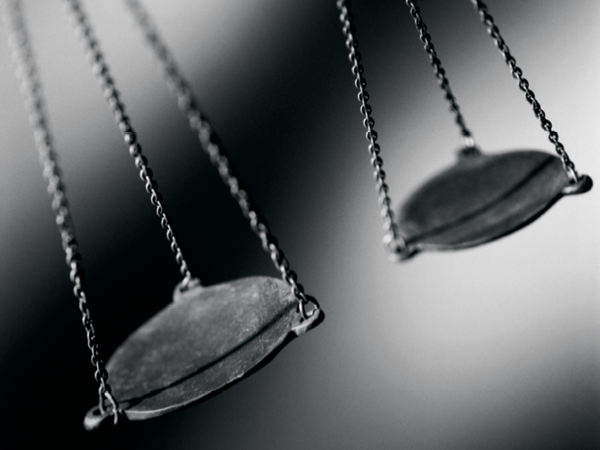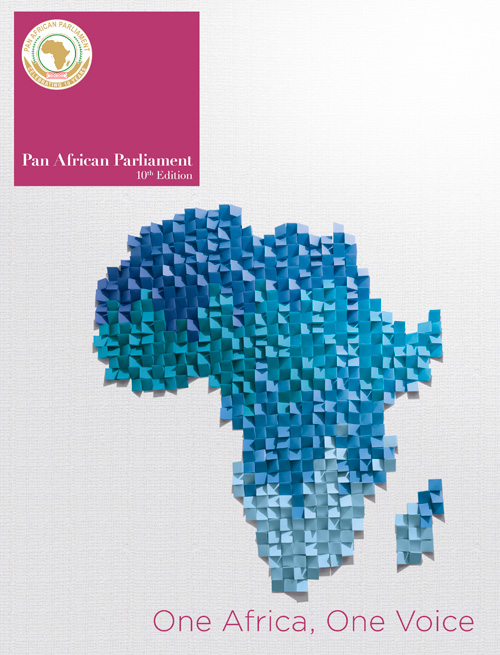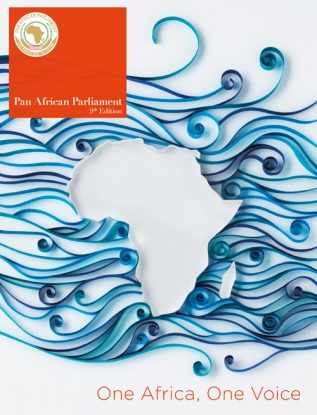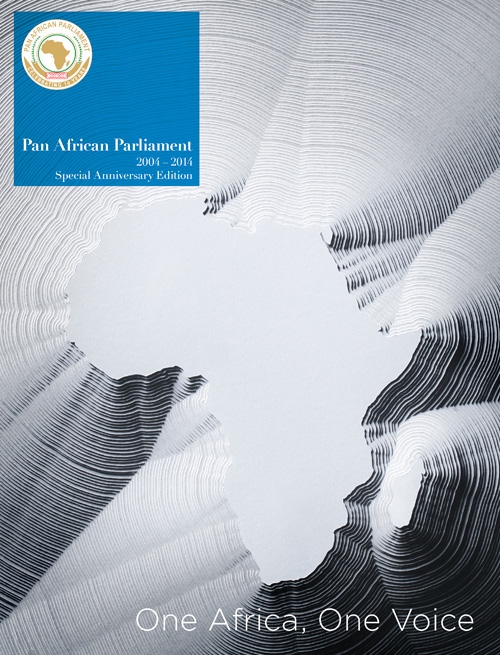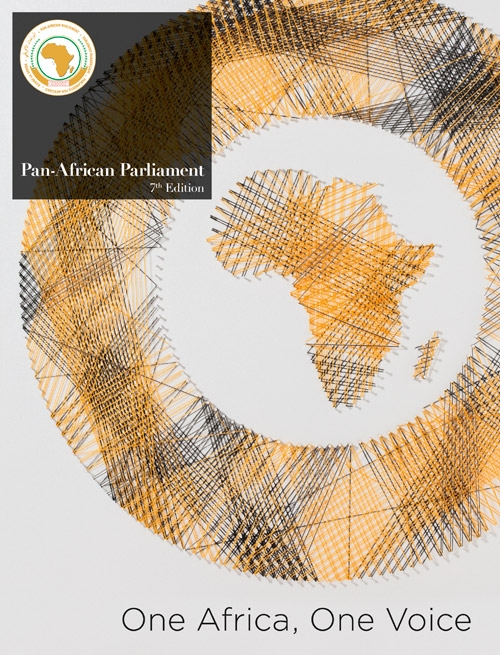
2010 SESSION
During the Fourth Ordinary Session of the PAP, the Committee on Justice and Human Rights met from 5–6 August 2010. The meetings were chaired by the Acting Chairperson, Hon Jhonny Haikella Hakaye, and the Committee appointed the Hon Abdoulaye Babou as its reporter in the absence of the Hon Jean-Claude Siapa Ivouloungou.
The Committee reviewed and adopted the minutes of the previous meeting, with amendments. It noted the problems caused by the absence of a quorum in previous meetings and appealed to the Bureau and the PAP Secretariat to ensure that members are properly notified of meetings.
The Committee dealt with the various agenda items, including the failed fact-finding mission to the UN Special Court for Sierra Leone and various issues that have hampered the Committee’s efforts to fulfil their mandate. It also noted that the Secretariat of the PAP did not inform or brief the Committee regarding the allocated budget for 2010.
During the meetings, the Committee put forward that it should be given the opportunity to spearhead and organise international Human Rights Day (held annually on 10 December), as well as conduct seminars and workshops in this regard. It also debated its involvement in election observer missions on the continent, an important oversight role currently being undertaken by the AU.
The PAP should utilise the APRM to strategically enhance the relevance and unique role of the Parliament
The Committee heard a presentation on the African Peer Review Mechanism (APRM) by Steven Gruzd, head of the governance and APRM programme at the South African Institute of International Affairs, entitled Latest Developments, New Opportunities. This was a follow-up on the presentation he made in March.
The presentation showed how the PAP has been neglected as an important stakeholder in the APRM. Countless challenges in its implementation included:
- A lack of consultation in the Country Review Mission.
- The participation of National Governing Council, which is largely ceremonial.
- Ignoring, criticising or boycotting any opposition.
- Relatively little input, influence and role when ensuring oversight, monitoring and accountability.
The Committee noted with serious concern the continuous suppression and exclusion of civil society organisations in the mainstream reforms of most African countries.
The Committee on Justice and Human Rights supported the view that the PAP should utilise the APRM to strategically enhance the relevance and unique role of the Parliament, and become a central part of the peer-review system, promoting oversight and accountability. To help achieve this, the Committee resolved that the APRM Secretariat should be invited to present to the Committee and to all Members of the PAP during the next session.
2011 SESSION
The Committee on Justice and Human Rights met again from 17 –18 March 2011 and 10–11 May 2011. The meetings were chaired by the Chairperson, Hon Agnès Mukabaranga.
During the meetings, the Committee deliberated on the uprising in North African countries, that is Libya, Côte d’Ivoire, Tunisia, Egypt and Western Saharawi. The Committee noted with concern the media reports of alleged violation of human rights and escalating humanitarian crisis in these countries. Members took note of the uprisings in these countries and believed they needed to be investigated to identify the root causes.
The Committee submitted the following proposed activities for the 2011 financial year:
- Two fact-finding missions to be undertaken to countries that have human rights issues.
- A seminar on the African Charter on Democracy, Elections and Good Governance.
- A capacity-building workshop on human rights and international justice.
The Committee again requested that the PAP establish a permanent Justice and Human Rights desk consisting of a Committee Clerk and a Legal Expert.
The Committee received a presentation by Jeggan Grey-Johnson from the Open Society Institute’s Africa Governance Monitoring and Advocacy Project (AfriMAP) on public broadcasting. AfriMAP, an initiative of the Soros Foundation’s network of four African foundations, works with national civil society organisations to conduct systematic audits of government performance in three areas: justice and the rule of law, political participation and democracy, and effective delivery of public services.
It also conducts research, engages in advocacy on public services and public broadcast media, as well as monitors election management bodies and citizenship in Africa.
The Committee also received a presentation by Tharcisse Nkanagu, Social Security Co-ordinator for the Africa region at the International Labour Organisation. The presentation concerned the outcome of the Yaoundé Tripartite Declaration on the implementation of the Social Protection Floor, whereby 47 African member states declared to undertake decisive steps to improve the level of social security for all.
A Member of the Committee, Hon Adjaratou Abdoulaye (Togo), attended the meeting on the adoption of the African strategy on human rights which took place from 26–27 April 2011, in Banjul, Gambia. The meeting was attended by representatives from the AUC, the organs of the AU, RECs, UN agencies and civil society organisations.
2012 DRAFT REPORT
The Committee on Justice and Human Rights arranged a Workshop on media freedom from 27–28 August 2012 and compiled a draft report after the meeting.
When the PAP was established, its stated objectives included the promotion of the principles of human rights and democracy in Africa, as well as the encouragement of good governance, transparency and accountability in Member States.
The African Charter on Human and Peoples’ Rights declares that ‘every individual shall have the right to receive information’ and that ‘every individual shall have the right to express and disseminate his opinions within the law’. These ideas state explicitly the right of freedom of expression and information for every person.
Although the constitutions of most countries in Africa guarantee the right to freedom of expression and information, the full enjoyment of these rights remains a challenge.
The PAP therefore proposed a continent-wide campaign to promote media freedom in Africa. The Committee was given the responsibility to lead this campaign and held a workshop, which aimed to bring together potential stakeholders to discuss the various components of the campaign.
Hon Roger Nkodo Dang, the first Vice-President of the PAP, opened the workshop held on 27–28 August 2012 in Johannesburg, South Africa. Other speakers at the workshop included: Rosario Soraide from UNESCO’s Freedom of Expression and Media Development division; Jeggan Grey-Johnson, communications and advocacy officer from AfriMAP; Pansy Tlakula, a member of the African Commission on Human and Peoples’ Rights (ACHPR); Zoe Titus, the acting regional director of the Media Institute of Southern Africa; and Omar Faruk Osman, president of the Federation of African Journalists.
Media freedom and freedom of expression is hampered by various restrictive laws in many African countries
According to the speakers, media freedom and freedom of expression is hampered by various restrictive laws in many African countries. Reform to such restrictive laws is painstakingly slow.
Africa is also considered to be one of the most dangerous places for journalists, with 18 killed on the continent in 2011. Journalists and media practitioners throughout Africa face harassment, intimidation and political interference, as well as arbitrary arrests and detention, in some cases without charges or due process of the law.
The outcome of the workshop comprised many valuable recommendations made by participants, including the establishment of a PAP Index on Media Freedom in Africa, to monitor the state of media freedom on the continent.
It was also recommended that the PAP should lobby for the amendment of laws that restrict media freedom in many African countries and that members of the PAP should take part in reform efforts in their respective countries. The PAP should condemn violations of media freedom in AU Member States and urge members to improve working conditions for journalists while creating a safe environment for the media.
It was also concluded that the campaign to promote media freedom in Africa should not be limited only to the rights of journalists, but also be balanced against the rights and duties of journalists.
It was decided that the PAP campaign, entitled Press Freedom for Development and Governance: Need for Reform, be launched during the Second Ordinary Session of the Third Parliament of the PAP in May 2013.
This would ensure the participation of all Members of the PAP and full media coverage.


